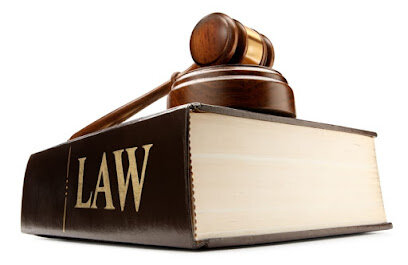Best Criminal Defense Lawyers in Texas
Share your needs with us, get contacted by law firms.
Free. Takes 2 min.
Or refine your search by selecting a city:
List of the best lawyers in Texas, United States
United States Criminal Defense Legal Questions answered by Lawyers
Browse our 1 legal question about Criminal Defense in United States and read the lawyer answers, or ask your own questions for free.
- Do you prosecute local Philippina for violating ESTAFA laws
- I was scammed by a lady presenting herself as my girlfriend.
-
Lawyer answer by mohammad mehdi ghanbari
HelloBased on the laws of the Philippines, you can file a criminal complaint against the person who scammed you for violating the laws on Estafa (swindling). Estafa is a criminal offense that involves defrauding another person of money or property...
Read full answer
United States Criminal Defense Legal Articles
Browse our 3 legal articles about Criminal Defense in United States written by expert lawyers.
- Clearing Your Record in Texas: 2026 Expunction Rules for US
- Criminal defense in the United States protects your rights from the moment of investigation through trial, sentencing, and appeals, and the stakes can include jail, fines, immigration consequences, and your future job prospects. You always have key constitutional rights: to remain silent, to have a lawyer, to be free from... Read more →
- Texas DWI Laws 2026 First Offense Penalties
- If you are arrested in the United States, you have the right to remain silent, the right to a lawyer, and the right to a fair trial - use those rights from the start. Criminal cases move quickly at the beginning: after arrest come booking, bail, your first court appearance,... Read more →
- Texas Bail Reform 2026: Why Bonds Are Harder to Secure in US
- If your loved one has just been arrested, move fast: confirm the exact charges, find out the bond amount, and contact a criminal defense lawyer immediately. In the United States, you have core rights at every stage - to remain silent, to an attorney, to reasonable bail (subject to exceptions),... Read more →
About Criminal Defense Law in Texas, United States
Criminal defense law in Texas refers to the body of statutes, regulations, and case law that governs how individuals accused of crimes are prosecuted and how they can defend themselves within the legal system. The State of Texas handles a wide array of criminal offenses, ranging from misdemeanors such as theft or assault to serious felonies such as drug trafficking or homicide. In criminal cases, the prosecution has the burden of proving the accused's guilt beyond a reasonable doubt. Criminal defense attorneys play a crucial role in protecting the constitutional rights of individuals and ensuring that the justice system operates fairly.
Why You May Need a Lawyer
Being accused or investigated for a crime in Texas is a serious matter. Even minor criminal charges can carry lasting consequences that affect your liberty, employment, housing, and reputation. You may need a criminal defense lawyer in situations such as:
- Arrested or charged with any misdemeanor or felony offense.
- Under investigation by law enforcement.
- Received a subpoena to testify in a criminal case or appear before a grand jury.
- Facing accusations of probation violation.
- Having your property seized in connection with a criminal case.
- Seeking to clear or expunge your criminal record.
Local Laws Overview
Texas criminal law is primarily found in the Texas Penal Code and the Texas Code of Criminal Procedure. Some key aspects relevant to criminal defense in Texas include:
- Classification of Offenses: Crimes in Texas are categorized as felonies or misdemeanors, with varying degrees of severity and penalties.
- Sentencing: Punishments can range from fines and probation to lengthy prison sentences or even the death penalty for capital offenses.
- Rights of the Accused: Individuals have the right to remain silent, the right to an attorney, and the right to a fair trial by jury.
- Search and Seizure: The Texas Constitution and the Fourth Amendment protect against unreasonable searches and seizures. Evidence obtained illegally may be suppressed.
- Bail and Bond: In most cases, individuals have the right to reasonable bail. Certain offenses or circumstances may limit this right.
- Plea Bargaining: Many cases are resolved by negotiation between defense and prosecution rather than going to trial.
- Juvenile Offenses: Minors accused of crimes are generally handled through the juvenile justice system, which focuses on rehabilitation.
- Expunction and Nondisclosure: Some criminal records can be erased or sealed under specific conditions.
Frequently Asked Questions
What should I do if I am arrested in Texas?
Remain calm, exercise your right to remain silent, and ask for an attorney immediately. Do not answer questions or sign anything without legal counsel present.
Can I represent myself in a criminal case?
You have the right to represent yourself, but it is highly discouraged due to the complexity and high stakes of criminal proceedings. Hiring a knowledgeable criminal defense lawyer is crucial.
What is the difference between a felony and a misdemeanor?
Misdemeanors are less serious crimes generally punishable by up to one year in county jail, while felonies are more serious and can result in state prison time, higher fines, and long-term consequences.
How does the bail process work?
After an arrest, a judge will set a bail amount based on the severity of the offense and the accused's history. You may pay the bail directly or through a bail bondsman to secure release while awaiting court proceedings.
What are my rights if the police search me or my property?
Law enforcement generally needs a warrant, your consent, or probable cause to conduct a search. If you believe a search was unlawful, your lawyer can challenge the evidence in court.
Can I have my criminal record removed?
In some cases, you may be eligible for expunction or an order of nondisclosure, which can allow you to erase or seal your criminal record under Texas law.
What happens if I violate probation?
A probation violation can result in a hearing. Punishments can include additional restrictions, extended probation, or revocation of probation and incarceration.
How long does a criminal case take in Texas?
The timeline varies greatly depending on the complexity of the case, court schedules, discovery processes, and plea negotiations. Some cases resolve quickly, while others may take months or longer.
Will my case go to trial?
Many cases are resolved through plea bargaining. A full trial may occur if you and your attorney decide to contest the charges or the prosecution does not offer a suitable plea agreement.
Do I have to answer police questions if I am innocent?
You are not required to answer questions without an attorney present, regardless of your innocence. It is in your best interest to exercise your right to remain silent and get legal representation.
Additional Resources
Several Texas organizations and government bodies can offer assistance or information on criminal defense:
- Texas State Bar - Provides resources for finding qualified criminal defense attorneys.
- Texas Department of Criminal Justice - Offers public information on criminal records, sentencing, and incarceration.
- Texas Legal Services Center - May provide legal aid or referrals for those who qualify.
- Local county Public Defender’s Offices.
- Local Legal Aid Clinics and Law Schools' legal aid programs.
- Texas Fair Defense Project - Promotes fair representation for people facing criminal charges.
Next Steps
If you or a loved one is facing criminal charges or is under investigation in Texas, take the following steps:
- Do not discuss your case with law enforcement, family, or friends until you have an attorney present.
- Contact a criminal defense lawyer as soon as possible to schedule a consultation. Bring all paperwork related to your case.
- Gather and preserve any evidence that could help your defense, such as text messages, emails, or witness contact information.
- Stay off social media or refrain from posting about your case to avoid harming your defense.
- Be proactive in following your lawyer’s advice and ensure you attend all court dates.
Lawzana helps you find the best lawyers and law firms in Texas through a curated and pre-screened list of qualified legal professionals. Our platform offers rankings and detailed profiles of attorneys and law firms, allowing you to compare based on practice areas, including Criminal Defense, experience, and client feedback.
Each profile includes a description of the firm's areas of practice, client reviews, team members and partners, year of establishment, spoken languages, office locations, contact information, social media presence, and any published articles or resources. Most firms on our platform speak English and are experienced in both local and international legal matters.
Get a quote from top-rated law firms in Texas, United States — quickly, securely, and without unnecessary hassle.
Disclaimer:
The information provided on this page is for general informational purposes only and does not constitute legal advice. While we strive to ensure the accuracy and relevance of the content, legal information may change over time, and interpretations of the law can vary. You should always consult with a qualified legal professional for advice specific to your situation.
We disclaim all liability for actions taken or not taken based on the content of this page. If you believe any information is incorrect or outdated, please contact us, and we will review and update it where appropriate.
Browse criminal defense law firms by service in Texas, United States
Texas, United States Attorneys in related practice areas.
Browse criminal defense law firms by city in Texas
Refine your search by selecting a city.
















